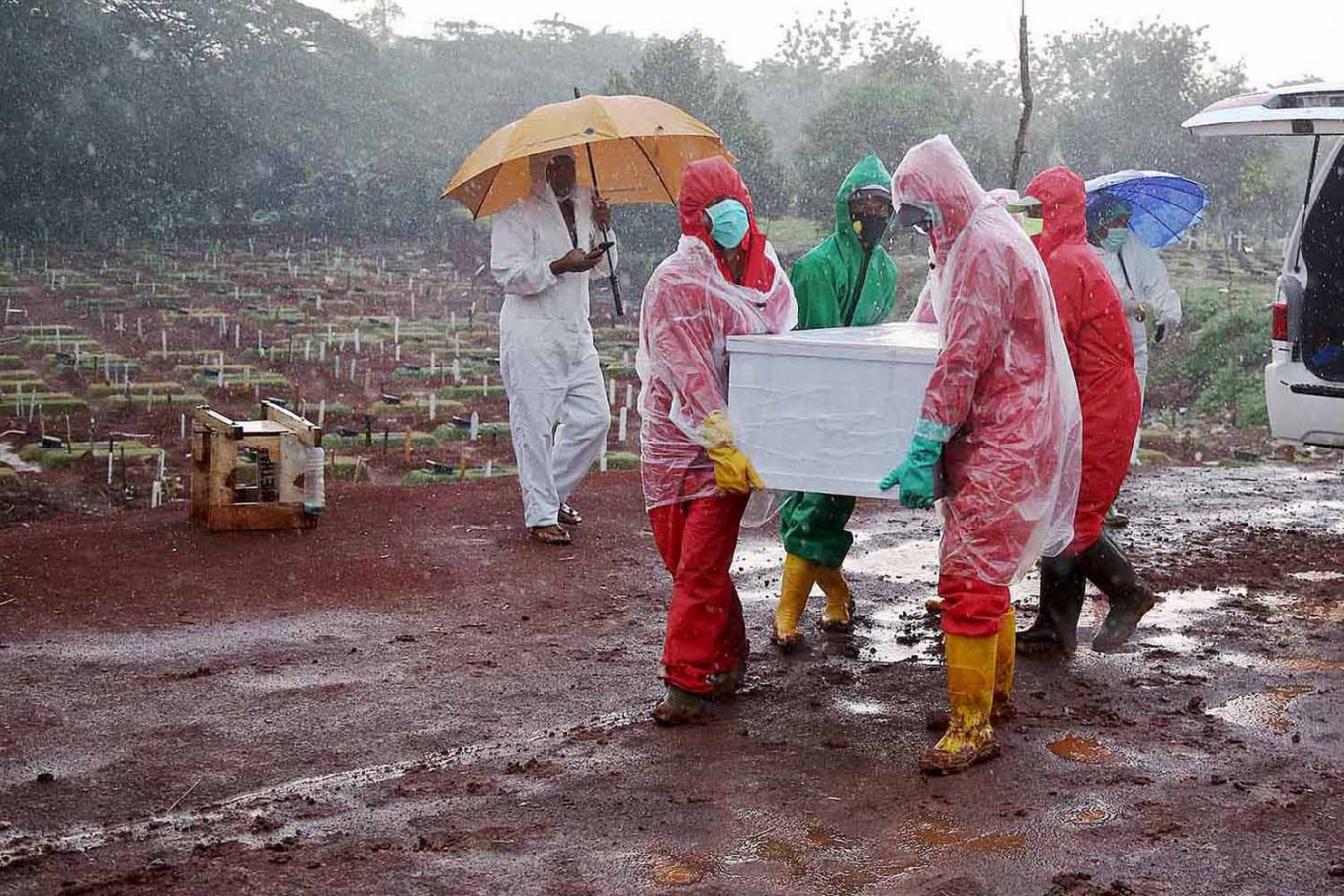Popular Reads
Top Results
Can't find what you're looking for?
View all search resultsPopular Reads
Top Results
Can't find what you're looking for?
View all search resultsPlastic from tapioca? Unpad students create more ecofriendly coronavirus burial shrouds
Change text size
Gift Premium Articles
to Anyone
 Workers carry the coffin of a COVID-19 victim in heavy rain at Pondok Ranggon public cemetery in East Jakarta on Oct. 2. The Jakarta administration has begun the two-month project of expanding the burial area for COVID-19 patients. In the first phase of expansion, the administration cleared 7,141 square meters. (JP/P.J. Leo)
Workers carry the coffin of a COVID-19 victim in heavy rain at Pondok Ranggon public cemetery in East Jakarta on Oct. 2. The Jakarta administration has begun the two-month project of expanding the burial area for COVID-19 patients. In the first phase of expansion, the administration cleared 7,141 square meters. (JP/P.J. Leo)
T
hree students of Padjajaran University's School of Pharmacy in Bandung, West Java, have invented a plastic-like burial shroud made of tapioca starch and other ingredients to wrap those who have died of COVID-19.
One of the students, Adira Rahmawaty, said the shroud was only 1 millimeter thick and would naturally degrade within 12 days.
With burial shrouds commonly 2 square meters in size, the tapioca-made burial shrouds would degrade naturally within six months underground.
Adira and her colleagues viewed that an environmentally friendly burial shroud was crucial as more dead bodies were buried according to COVID-19 protocols.
“Our hope is that more research will follow ours and that this research can be implemented to reduce environmental damage,” Adira said on Wednesday.
Read also: Saving lives and the economy using technology amid COVID-19 pandemic
Besides basic hygiene and social distancing measures, the bodies of people who die after testing positive or showing coronavirus symptoms are usually wrapped tightly with plastic to prevent any bodily fluid from the deceased leaking and infecting a healthy person.
However, common plastics do not easily degrade in nature and pollute the environment.
Adira said her team’s burial shroud was made of tapioca starch mixed with chitosan, glycerol, sorbitol, aloe vera and cinnamon oil as a plasticizer. The ingredients are then boiled at a high temperature until they dissolve and become liquid.
The liquid is later poured into mold and dried inside an oven for 24 hours. The material is then cooled with a desiccator until a plastic-like film is formed.
Through their invention, Adira and her team won third place in the Agrogomplex category of the 2020 National Online Scientific Writing Competition hosted by Brawijaya University in Malang, East Java, from Sept. 6 to 8. (ami)










